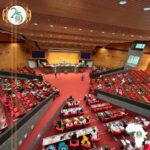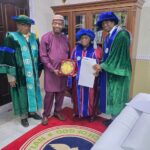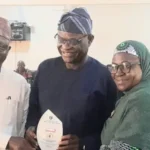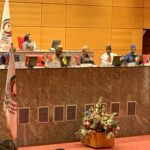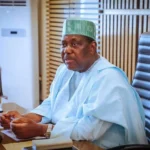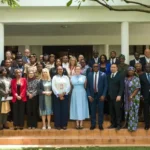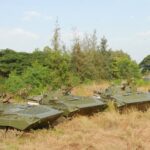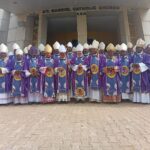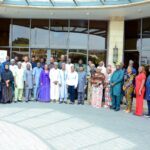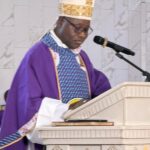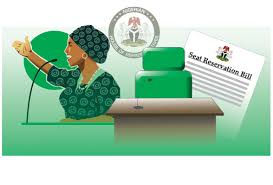By reporters
Stakeholders in Kebbi, Sokoto and Zamfara States have renewed calls for deliberate policies to promote women’s participation in politics through capacity building, mentorship and reservation of elective and appointive positions.
They made their position known in interviews with the News Agency of Nigeria (NAN) across the three states.
The stakeholders stressed the need for aggressive sensitisation to create awareness not only among the female folk but also including their male counterpart.
Mrs Blessing Michael, Chairperson, League of Women Voters in Kebbi, said gender balance in governance could not be achieved without structured interventions to address social, cultural and institutional barriers that limit women’s involvement in democratic processes.
Michael said the league was established to change the narrative of women’s participation in politics in the state.
“Here in Kebbi, our women are able and capable when given the opportunity, but men have occupied almost all elective and appointive positions, making decisions that affect women and children.
“If a woman is assigned to do something, she will deliver 100 per cent because she knows the society is woman, and woman is the society,” the chairperson said.
Michael identified patriarchy as a major obstacle to women’s participation in politics, describing it as an institution upheld not only by men but also, unfortunately, by women themselves.
“Our society frequently undermines a woman’s capacity to lead,” she said, stressing the need for training and empowerment to increase women’s representation in line with the National Gender Policy (NGP).
“We rally behind every woman who expresses interest in public office. With women constituting about 50 per cent of the voting population and over 60 per cent of the total population, legislative action must back their inclusion,” she advocated.
Michael lamented that Kebbi ranked poorly on women’s inclusion in governance, despite the recognition of women’s political strength by Gov. Nasir Idris.
“Even our governor recently described women as a formidable political force whose steadfastness and numerical strength determine electoral victory. But this strength is not reflected in elective or appointive positions.
“No woman has ever been elected governor, deputy governor or member of the State House of Assembly since the return of democracy in 1999. This is worrisome and must change for equity, fairness and inclusiveness,” she said.
Also, Hajiya Safiya Musa-Ribah, Women Leader, Consolidated APC Grassroots Mobilisation, stressed the need for continuous capacity building to prepare women for active political participation.
“Marginalisation, patriarchy, arising from cultural beliefs, stigmatisation, financial constraints and lack of political exposure are some of the challenges limiting women’s involvement in politics.
“With proper training and support, the narrative will change for the better for women in the state. That is why we insist on training and deliberate mentorship to prepare them for elective offices,” she said.
Similarly, Alhaji Nasiru Karofi, Director, National Orientation Agency (NOA) in Kebbi, called for more women to contest legislative seats, especially in local government areas with two constituencies in the state assembly.
“I have directed Hajiya Hasana Yusuf, an Assistant Director in the agency, to champion advocacy for women’s participation in politics, particularly in the state house of assembly.
“We have three LGAs, Bagudo, Danko/Wasagu and Birnin Kebbi, that have two constituencies each. We want to engage the Inter-Party Advisory Council (IPAC) in the state to encourage political parties to reserve one of those seats for women,” he said.
Karofi also urged political parties to create a level playing field for women by reducing nomination fees and ensuring fairness in internal party democracy.
The Director Women in the Sokoto State Ministry of Women and Children Affairs, Hajia Hauwa’u Umar-Jabo, said different programmes were being piloted to ensure women participants in various sectors.
Umar-Jabo said the current administration had implemented programmes to support women’s economic and personal growth, including providing grants and equipment to women farmers and training adolescent girls in skill acquisition.
She said: “There is no woman in Sokoto State House of Assembly, no woman ever occupied the positions of Governor or Deputy Governor, there are only two Commissioners out of 27, five Permanent Secretaries out of 47 in the state civil service and 195 as Directors out of 870 among others.”
According to her, the percentage indicated that women can excel in any position, describing aspiring for political position as more easier in recognition of the roles women play in the society.
In another interview, the District Head of Gagi, Alhaji Sani Umar-Jabbi, observed that cultural and religious beliefs constituted integral part of peoples lives in northern Nigeria, emphasising the need for more awareness for women participating in all spheres of life.
The Spokesperson to Gov. Dauda Lawal of Zamfara State, Mr Suleiman Idris, said the state had 14 Councillors representing different political wards in the local government areas of Zamfara.
Idris pointed out that State Chief Judge, Justice, Kulu Aliyu, is a woman, with Dr Nafisat Maradun and Dr A’isha Anka as Commissioners for Health and Women Affairs respectively.
He added that many women were occupying important public offices in healthcare, education, finance and entrepreneurship across the state, saying that it was an indication that women have the capability to compete in any political office.
A Social Advocate, Hajia Halisa Nurudden, said traditional, patriarchal attitudes in society and within political parties have been limiting women’s roles and leadership opportunities.
Nurudden added that high expenditure in politicking or money politics was undermining the process and disproportionately affects women, who generally have fewer financial resources than their male competitors. (NAN)(www.nannews.ng)
Edited by Muhammad Lawal

